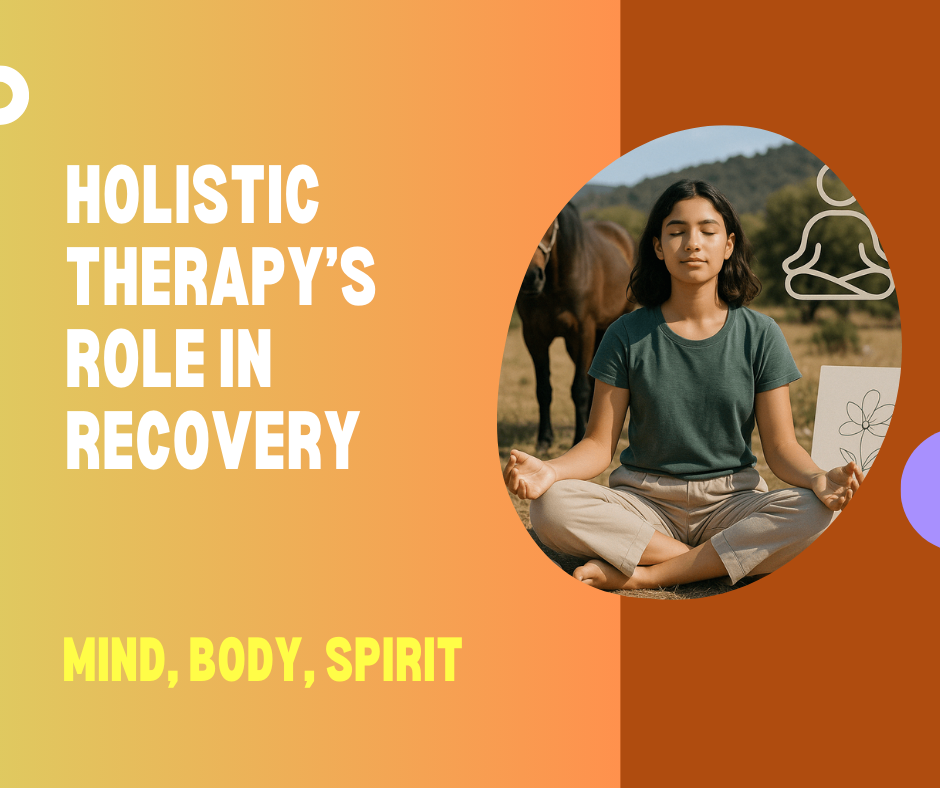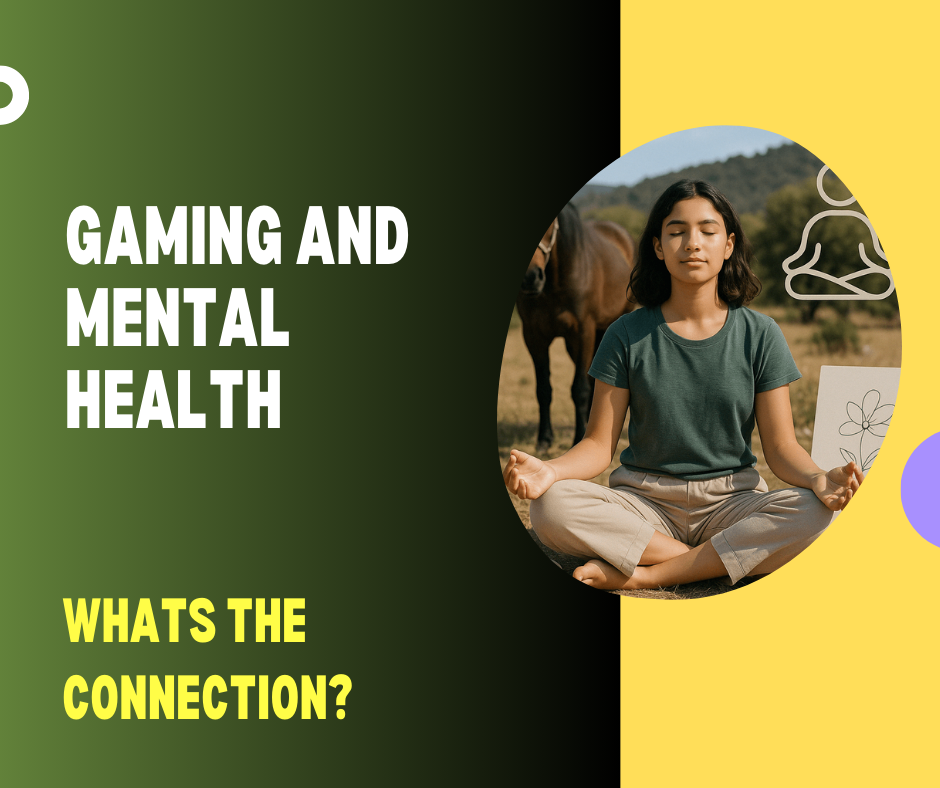Social Media and Teen Mental Health: Understanding the Risks for Our Kids
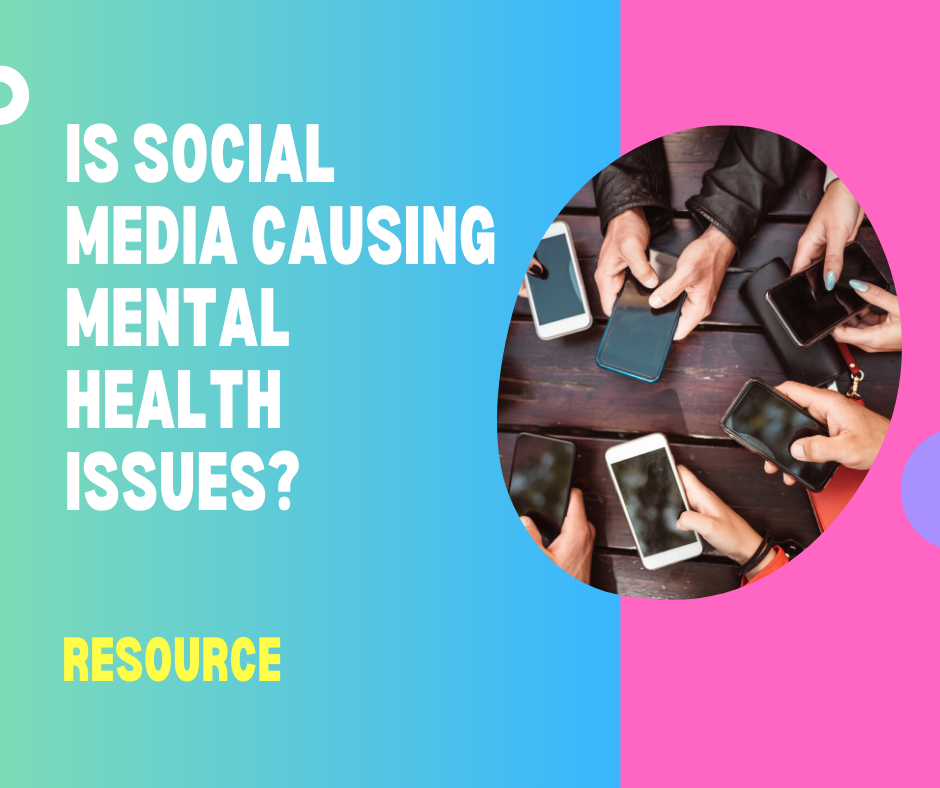
Who this is for: Parents seeking to raise awareness about how social media might be affecting their teenagers’ mental health.
The Teen Mental Health Crisis in the Digital Age
Teen mental health issues have been rising for more than a decade, and many experts are questioning how much of that is related to social media use. In 2023, U.S. Surgeon General Dr. Vivek Murthy issued an advisory warning that social media may be causing harm to young people’s mental health, citing a “growing evidence” base of negative effects. This concern has become so pronounced that Dr. Murthy even called for a surgeon general’s warning label on social media platforms (similar to tobacco warnings) due to their potential risks. The American Psychological Association (APA) has echoed these worries with its own health advisory, underscoring that we can no longer ignore the connection between pervasive social media use and the decline in youth mental well-being.
At Horizon Recovery – a teen-focused mental health treatment center in Arizona – clinicians witness these trends firsthand. “We’re seeing increasing rates of anxiety, depression, and even substance use among teens, and social media is often a contributing factor,” notes Dr. Mona Amini, MD, MBA, a board-certified psychiatrist at Horizon Recovery. Dr. Amini, who leads Horizon’s clinical team, has been an outspoken advocate for addressing this crisis head-on. She and other experts emphasize that while every adolescent’s experience is unique, parents should be informed about what the research says. Understanding the risks is not about blame or banning technology—it’s about awareness.
“My goal is to shatter the silence around once-taboo mental health topics,”
Dr. Amini often explains, underscoring the urgent need for open dialogue and progressive change in how we support our kids. In that spirit, let’s explore what scientists and doctors are discovering about social media’s impact on teen mental health.
Social Media Use Is Nearly Universal for Teens
It’s important to recognize how ingrained social media is in teen life today.
Recent surveys show that 95% of American teenagers (ages 13–17) use social media, and more than one-third say they use it “almost constantly”. Platforms like YouTube, TikTok, Snapchat, and Instagram dominate teen online activity. Many kids are joining earlier than parents might realize: although most apps set a minimum age of 13, nearly 40% of children ages 8–12 in the U.S. use social media in some form.
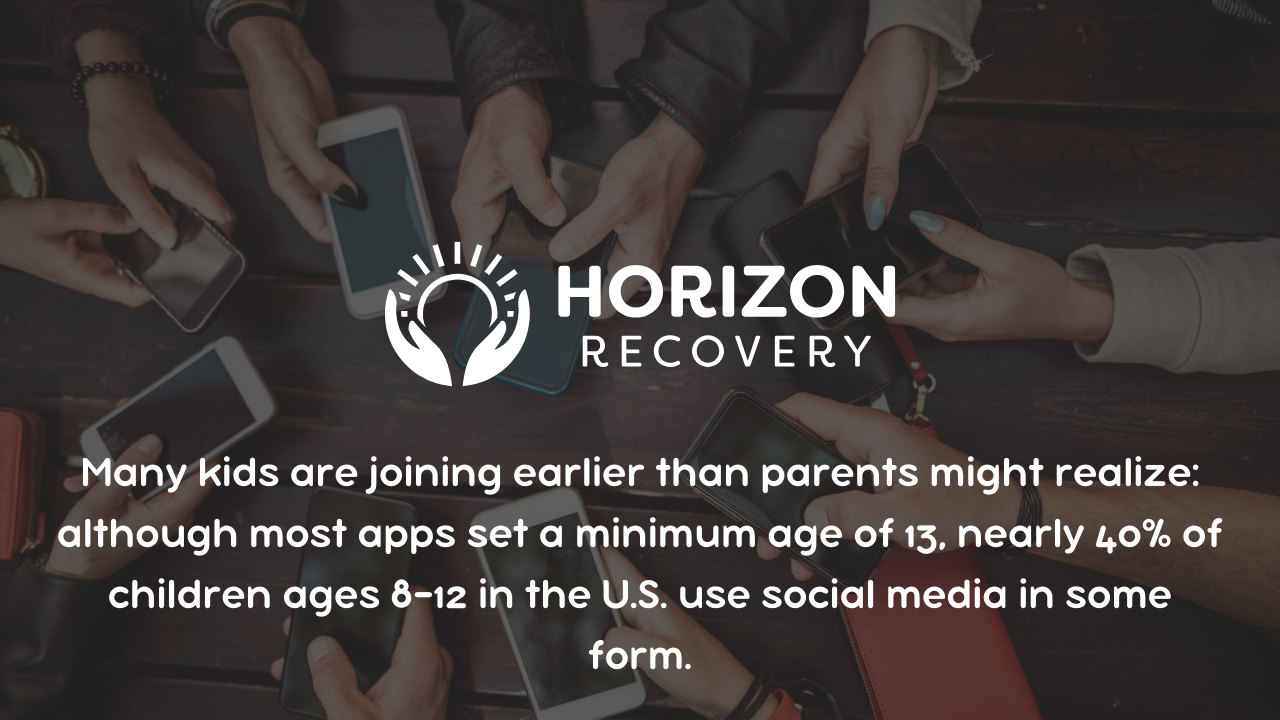
There are positive aspects to this online connectedness. Social media can help some teens feel more accepted and supported, find communities of peers with similar interests, and express themselves creatively. In one Pew Research Center survey, a majority of teens said social media makes them feel more connected to their friends’ lives (80%), gives them a place to show their creative side (71%), helps them feel accepted (58%), and provides support during tough times (67%).
Especially for teens who feel isolated offline or who belong to marginalized groups, online communities can offer affirming spaces and valuable information. These are the upsides that we don’t want to overlook – the goal isn’t to demonize social media entirely.
However, the upsides come with serious downsides. Nearly all teens are online, which means any potential harms of social media have a very wide reach. Below, we highlight key findings from emerging research on how heavy social media use can adversely affect teen mental health. The intent is not to scare, but to inform parents so they can make the best decisions for their families. As Dr. Amini and her colleagues advise, every teen is different – but every parent can benefit from knowing the facts.
How Social Media May Harm Teen Mental Health
Research into social media’s effects is still evolving, but a number of worrying patterns have been identified. Excessive use of social media has been linked to increased risks of depression, anxiety, poor self-esteem, and other mental health struggles in teenagers. Here are several key areas of concern:
Higher Rates of Depression & Anxiety:
Multiple studies indicate that heavy social media use correlates with poorer mental health in teens. For example, adolescents who use social media more than 3 hours per day have been found to face double the risk of experiencing symptoms of depression or anxiety compared to those who don’t use social media at all.
A study published in JAMA Psychiatry tracked teenagers over a year and found those with high social media usage were significantly more likely to develop “internalizing” problems (like withdrawal, sadness, or anxiety) down the line. Importantly, while such studies can’t prove that social media causes depression or anxiety, the consistent link suggests that more time online likely worsens mental well-being for many teens.
As one researcher put it, “We cannot conclude social media causes mental health problems, but we do think that less time on social media may be better for teens’ health.”
In Dr. Amini’s experience at Horizon Recovery, this rings true: “When we help teens cut back on screen time during treatment, we often see improvements in mood and anxiety,” she notes, reinforcing the idea that moderation matters.
“Algorithmic” Pressure and Negative Content:
Beyond the quantity of screen time, the type of content teens engage with can profoundly impact their mental state.
Social media algorithms are designed to serve up content based on a user’s interests – and they can amplify harmful content. Yale experts warn that if a teen clicks on posts about depression or self-harm, the platform may start flooding their feed with similar content, creating a distorted sense that such issues are everywhere.
Dr. Linda Mayes of the Yale Child Study Center explains that a teen who searches for topics like depression or suicide could quickly feel like “everyone around them is depressed or thinking about suicide,” which can exacerbate feelings of hopelessness. Even more disturbing, some social platforms have had cases of suicide challenges or self-harm trends going viral.
The Surgeon General’s report noted that exposure to suicide- and self-harm-related content (like videos of “challenge” games involving choking or cutting) has been linked to actual teen deaths, as viewing such content can normalize dangerous behaviors.
Cyberbullying is another major risk: harassment and bullying online can be relentless and very public, contributing to depression, anxiety, and even suicide in vulnerable teens. In Dr. Amini’s view, “parents should be aware not just of how long teens are online, but what they might be seeing or experiencing on those platforms.” An innocent search or a malicious comment from a peer can have real mental health consequences.
Body Image Issues and Eating Disorders:
Social media can bombard adolescents with highly edited, “perfected” images that set unrealistic standards for beauty and body image. Teen girls, especially, appear to be at heightened risk.
A comprehensive review of 50 studies across 17 countries (published in PLOS Global Public Health) found that the relentless exposure to unattainable physical ideals on social media can trigger a distorted self-image and disordered eating behaviors. This constant comparison to airbrushed influencers can make teens (girls and boys alike) feel inadequate about their own bodies.
Experts have observed spikes in body dysmorphia, crash dieting, and eating disorders among youth who heavily use apps centered on appearance and “likes.” In fact, the Surgeon General’s advisory singled out body image issues as a specific concern tied to social media use, citing it as a contributor to depression and low self-esteem in teens.
The damage here can be insidious: a teenager might not even realize how much their daily scrolling is eroding their self-worth. Dr. Amini reminds parents that what teens see on Instagram or TikTok is often a highlight reel or fantasy – not real life. Helping teens keep that perspective is critical.
Sleep Disruption and Fatigue:
It’s not just what teens are doing online, but when. Late-night social media use is extremely common – and it can wreak havoc on healthy sleep.
On a typical weekday, nearly one-third of adolescents report using screen media until midnight or later, often on social apps. This night-time scrolling can lead to reduced sleep duration and poorer sleep quality, which in turn is linked to worse mental health outcomes.
Research has shown that teens with deficient sleep are more likely to experience mood swings, depression, anxiety, and even a higher risk of suicidal thoughts. It becomes a vicious cycle: social media keeps them awake, and then the resulting exhaustion makes them feel worse the next day. “Sleep is essential for healthy adolescent brain development,” Dr. Amini emphasizes, “yet phones in bedrooms are cutting into that crucial recovery time.”
One simple step many experts (and the APA) recommend is instituting a “digital curfew” – have everyone (parents included!) park their devices outside the bedroom at night and avoid screens at least an hour before bedtime. This helps protect that all-important sleep. As Dr. Yann Poncin, a Yale child psychiatrist, points out, creating a culture where phones get turned off by a certain time every evening can vastly improve a teen’s sleep hygiene and, by extension, their emotional resilience.
Addiction and Brain Effects:
Ever notice how your teen seems “glued” to their phone? There’s a reason social media often feels addictive – it literally activates the same reward circuits in the brain as addictive substances do. Adolescence (ages ~10 to 19) is a highly sensitive period of brain development, especially in areas that control impulses, emotional learning, and self-esteem. Flooding the developing brain with constant social media stimulation can overstimulate its reward center in unhealthy ways.
Researchers compare excessive social media exposure to triggering the brain’s dopamine pathways similar to gambling or drug use. In fact, Stanford psychiatrist Dr. Anna Lembke famously described the smartphone as “the modern-day hypodermic needle, delivering digital dopamine for a wired generation”. Every notification, “like,” or new content triggers a little burst of dopamine (the brain’s pleasure chemical). Over time, our brains adapt by dulling our response, potentially leading to a dopamine deficit state that leaves teens craving more screen time yet feeling less and less satisfied.
Social media apps are deliberately engineered to be as engaging and hard to put down as possible – endless scrolling feeds, algorithmic content tailored to your interests, and intermittent rewards (e.g. unpredictable likes or messages) keep users hooked. Dr. Lembke explains that these apps “drugify” social connection, hijacking our natural drive to socialize by offering exaggerated social stimuli (countless photos, videos, and affirmations at our fingertips).
Teens (and adults) can literally experience withdrawal-like symptoms – anxiety, irritability, sadness – when they try to cut back, because their brains have gotten accustomed to the constant high stimulation. It’s a cycle that can spiral: when they’re online, teens might feel temporary joy or distraction, but as soon as they log off, they can crash into loneliness or depression, leading them to go back for another “hit” of social media.
Overuse can also crowd out healthier activities (exercise, in-person interaction, homework, sleep), compounding the negative impact. There’s even evidence tying smartphone overuse to increases in teen self-harm and suicidality, as one systematic review noted. In short, social media isn’t “just harmless fun” – for some teens it can function like an addictive substance that alters their mood and behavior, and even their developing brain, in troubling ways.
Real-World Isolation:
Ironically, while social media is designed to connect people, heavy use can end up isolating teens from real-world relationships. Hours spent curating a perfect profile or seeking validation online might come at the expense of face-to-face time with family and friends.
Some teens develop an unhealthy fixation on their online persona, feeling pressure to perform and compare, rather than engaging authentically with others. This can erode social skills and increase feelings of loneliness. Certain warning signs might include your teen withdrawing from family activities, constantly checking their phone even when with friends, or becoming anxious when they can’t be online. (It’s telling that one clinical sign of problematic social media use is “distress when access is limited,” much like an addiction.)
Over time, excessive online socializing can leave teens less fulfilled by real-life interactions, creating a damaging feedback loop: they feel lonely or bored, turn to social media for comfort, then end up feeling even more lonely. Dr. Amini has observed this in her practice: teens who spend inordinate time on social networks often report feeling more socially disconnected in the real world – a painful paradox of the digital age.
A Note on Benefits: It’s Not All Doom and Gloom
In raising awareness of risks, we should also acknowledge that not all social media experiences are negative. Many teens navigate social apps just fine and gain some benefits. Some positives include: creative self-expression (through art, music, videos), keeping in touch with distant friends or relatives, accessing educational content, and finding support networks. Social media was a lifeline for many young people during the isolation of the COVID-19 pandemic, helping them maintain friendships and feel less alone.
Balanced use – like using apps to coordinate real-world meetups or engage with inspirational, skill-building content – can enrich a teen’s life. Researchers point out that the impact of social media varies depending on a teen’s individual vulnerabilities and how they use these platforms. For instance, a teen with a strong friend group and self-confidence might scroll Instagram and log off feeling fine, whereas a teen struggling with depression might internalize negative messages they see.
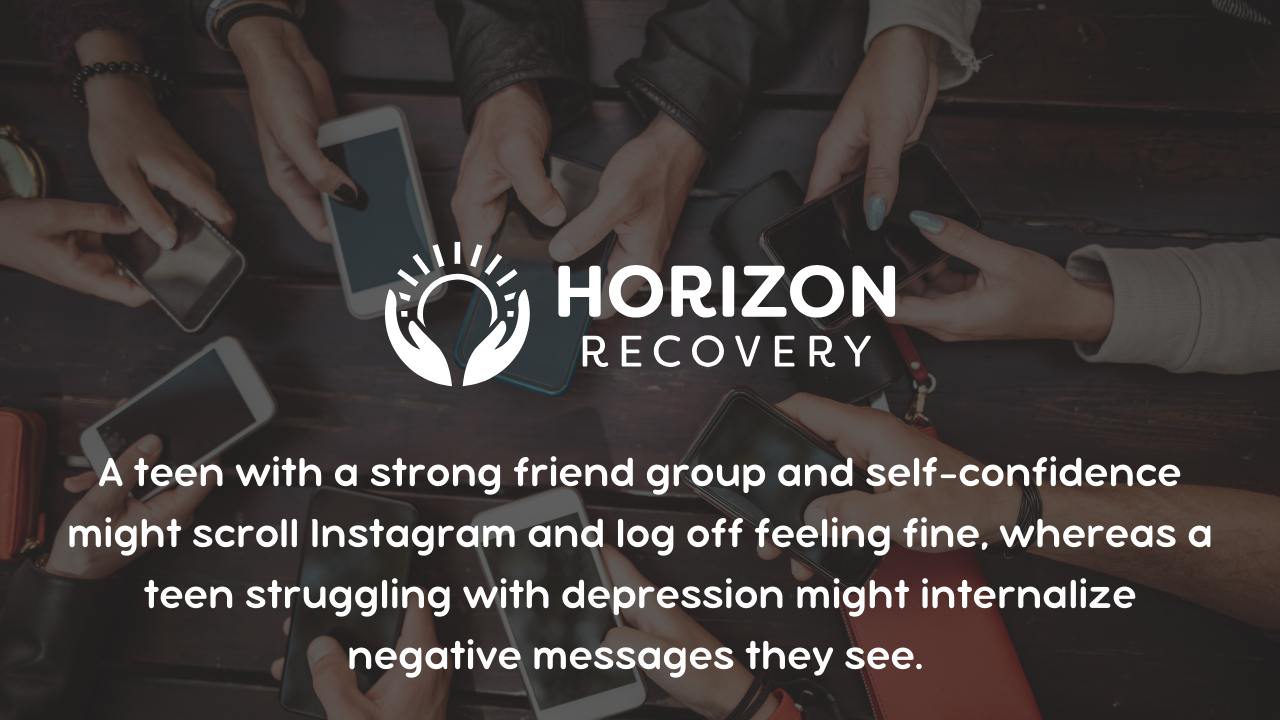
The key takeaway for parents is that context matters. That’s why completely banning social media isn’t a realistic or even necessary solution for most families – instead, the focus should be on healthy management and open communication. As Dr. Murthy’s advisory concluded, more research is needed to fully understand all the nuances of social media’s impact. In the meantime, a balanced, eyes-open approach can help maximize the good and minimize the bad.
What Parents Can Do: Promoting Healthy Social Media Habits
Every family and every teenager is different, so there’s no one-size-fits-all rulebook for managing social media. “Everyone parents differently,” as the saying goes – and what works for one teen may not work for another. That said, research and expert consensus point to several practical steps that can help protect your teen’s mental health in the online world. Consider the following strategies as food for thought:
Create an Open Dialogue (Not a One-Way Lecture).
Perhaps the most important thing is to keep communication lines open with your teen about their online life. Teens are more likely to come to you with problems – like cyberbullying, or seeing something disturbing online – if they know you’re willing to listen without immediately judging or punishing them.
“I don’t believe you should secretly monitor every content your teen sees,” says Dr. Poncin of Yale, “because teenagers deserve a measure of privacy. Instead, aim to build trust so they’ll talk to you if something feels off.”
In practice, this means having calm, honest conversations about social media. You might ask open-ended questions like, “What do you enjoy online lately?” or “Have you seen things that upset you on Instagram/TikTok?” – and then really listen. If you notice concerning changes (like your teen seeming sadder after long hours online), gently share your observations without jumping to blame: e.g., “I’ve noticed you seem down after scrolling on TikTok. What do you think about taking a break and doing something together?”
Dr. Amini and other clinicians recommend an empathetic, non-judgmental approach – making it clear you’re on your teen’s team, not looking to punish them for being online. Remember, the goal is to equip your teen to navigate social media wisely, not to scare or shame them. By normalizing discussions about mental health and social media, you empower your teen to think critically and come to you when they need help. It’s exactly the kind of open dialogue Dr. Amini champions in her practice – breaking the stigma so teens feel safe discussing their struggles.
Set Reasonable Limits and Tech-Free Zones.
Even without definitive proof of causation, the evidence of harm from excessive social media use is strong enough that many experts urge limiting screen time for teens. For instance, that might mean agreeing on no more than an hour or two of recreational social media on school nights.
Studies suggest risk rises sharply beyond ~3 hours per day online, so helping teens prioritize offline activities (homework, sports, face-to-face time, sleep) on weekdays can keep their usage in a healthier range. Bedtime is one critical boundary: as discussed, devices should ideally be out of the bedroom at night. Consider having a family charging station in the living room where everyone’s phones go at, say, 10 PM. (Yes, this is hard – teens will protest they need their phone for an alarm or homework, but solutions exist like a standalone alarm clock or downloading needed info before bed.)
Also think about establishing tech-free family times, like no phones at the dinner table, or a rule that everyone disconnects for an hour in the evening to relax device-free. These routines not only protect mental health and sleep; they also reinforce that life exists beyond the screen. Dr. Amini notes that when parents set consistent, caring boundaries, teens often feel relief (even if they won’t admit it!) because it gives them an “out” from the pressure to be online 24/7.
The APA recommends parents co-create a “family social media plan” – essentially, a set of agreed-upon rules that might cover when and where devices can be used, what apps are okay, and how to handle online issues that arise. By involving your teen in setting the rules, you give them ownership and buy-in, rather than just imposing a top-down decree.
Monitor Content and Encourage Digital Literacy.
While spying on your teen is not advisable (it breaks trust), being aware of what platforms and types of content they’re into is just good parenting. Friend or follow younger teens online if they’re comfortable, or have them show you their favorite TikToks or YouTubers. This isn’t to snoop, but to understand their world and spark conversation.
Teach them critical thinking about social media: for example, discuss how images are often edited and not an accurate reflection of real life, or how people online often show a highlight reel. If your teen understands that what they see isn’t the whole truth, they’re less likely to feel inadequate by comparison.
Also, talk about online safety and kindness: remind them that cyberbullying or hate speech is not okay, and encourage them to tell you or another adult if they experience or witness it. Make sure they know how to use privacy settings, block or report harassers, and why it’s important not to share personal information with strangers online.
Horizon Recovery’s team often educates families on these digital literacy skills as part of therapy, since empowering teens to handle challenges is more effective than trying to shield them from every potential harm.
Another idea: occasionally co-view or co-play something with your teen (for instance, watch a trending YouTube series together) and then discuss it. This approach, akin to parents watching TV with kids in earlier generations, helps demystify what they’re seeing and lets you gently insert your values or concerns (“That video was funny, but do you think they were promoting a risky behavior there?”).
Watch for Warning Signs of Distress.
Pay attention to changes in your teen that might indicate their social media use is becoming unhealthy. Mood swings, increased irritability, slipping grades, avoiding social interactions, secretive behavior, sleep problems, or signs of depression/anxiety could all be red flags that something is wrong. Of course, these issues can have many causes (adolescence is a rollercoaster!), but it’s worth considering if excessive social media or online experiences are contributing.
For example, a usually outgoing teen becoming withdrawn and glued to their phone might be experiencing cyberbullying or just feeling FOMO (fear of missing out) from seeing friends’ posts.
A teen girl who starts skipping meals and obsessively editing selfies might be absorbing toxic body image messages online. If you see concerning changes, do not hesitate to gently intervene – start by talking to your teen. Use “I” statements and concern, not accusations: “I’ve noticed you seem down and you’re on Instagram a lot; I’m worried about you. Can we talk about what’s going on?”
If serious symptoms are present (like signs of depression, self-harm, extreme anxiety, or suicidal thoughts), consider seeking help from a mental health professional sooner rather than later. Sometimes an outside perspective, like a therapist or counselor, can uncover issues that a teen is reluctant to share with a parent.
As Dr. Amini advises, early intervention is key. Horizon Recovery and similar adolescent programs are there to help families navigate these crises – and it’s far better to reach out for help than to ignore the warning signs until things worsen.
Model Healthy Tech Habits as a Parent.
This one can be tough, but it’s powerful: kids learn from our example. If we parents are constantly scrolling Facebook or answering emails at the dinner table, we send the message that screens are more important than present company. Try to set a positive example by managing your own screen time. Establish family norms like putting phones away during outings or conversations.
Show that you can have fun without devices – play a board game, go for a hike, read a book, etc. Also, be mindful of how you talk about social media and appearance; avoid overly comparing or doom-scrolling in front of the kids.
When teens see that even adults need to exert self-control and balance with technology, it validates that these habits are important for everyone. It can be a bonding opportunity too – you might admit, “I realized I was checking work email at 10 PM and it’s stressing me out, so I’m trying to unplug earlier. Maybe we can both work on cutting back at night.” By making it a team effort, you avoid hypocrisy and build mutual respect.
Remember, the goal isn’t to be perfect (we’re all human and addicted to our gadgets to some degree), but to strive for balance and demonstrate that mental health and real-life connections come first.
Leverage Social Media’s Positives.
Finally, consider ways to turn social media into a constructive force for your teen. Follow inspirational or educational accounts together (science, art, history – whatever interests them).
Encourage your teen to create rather than just consume: maybe they like photography, coding, or music – could they use social platforms to share their own projects or join groups that build their confidence? There are many youth-led initiatives and support groups on social networks that do wonderful work on mental health awareness, volunteering, and creativity.
Guide your teen toward corners of the internet that uplift them. And of course, help them maintain a balance: use social media as a springboard to offline activities. If they found a cool DIY craft on YouTube, try making it in real life. If they connected with a schoolmate online, encourage inviting that friend over in person. In essence, help your teen integrate their online and offline worlds in healthy ways, rather than seeing them retreat entirely into the digital realm.
Staying Informed and Seeking Help When Needed
As our teens navigate the ever-changing social media landscape, parental awareness is our biggest ally. New apps and trends emerge constantly, and ongoing research will continue to shed light on how these technologies affect young minds.
By staying informed – reading articles (like this one), following updates from pediatric and mental health organizations, and talking with other parents – you can better anticipate challenges and support your teen.
“Don’t just take our word for it,” Dr. Amini stresses. “Keep learning, stay curious, and pay attention to your child’s needs.” The fact is, everyone parents differently and no expert can tell you exactly what will work for your family. But knowledge gives you options. Even just being aware that too much TikTok could fuel your child’s anxiety, or that Instagram might be warping their body image, allows you to take thoughtful action rather than feel powerless.
Lastly, remember that you’re not alone in this.
If you ever feel your teen is struggling with mental health issues related to social media (or in general), don’t hesitate to reach out for professional help. This could mean talking to your pediatrician, consulting a therapist, or exploring programs like Horizon Recovery that specialize in adolescent mental health.
Sometimes a digital detox or stricter limits – ideally done in collaboration with your teen – can reset healthier habits. In more severe cases, a therapeutic setting might be needed to address underlying issues like depression, anxiety disorders, or trauma that social media may be aggravating. The encouraging news is that with proper support, teens can and do recover and learn to engage with technology in balanced ways.
In conclusion:
Social media is now a fixture of teen life, bringing both connection and concern. By approaching it with open eyes and an open mind, parents can help tilt the balance in a positive direction. Awareness is the first step.
Talk to your teens, set thoughtful boundaries, and stay involved. As Dr. Mona Amini and her colleagues at Horizon Recovery have seen, when families work together to address these challenges, teens can thrive even in our high-tech world. Social media isn’t going away – but with your guidance, its negative effects on your teen’s mental health can be kept in check.
Armed with knowledge and empathy, you can ensure that your child’s online experiences are as safe, healthy, and enriching as possible.
Sources
Yale Medicine – How Social Media Affects Your Teen’s Mental Health: A Parent’s Guide
https://www.yalemedicine.org/news/social-media-teen-mental-health-a-parents-guide
Johns Hopkins Medicine – Social Media and Mental Health in Children and Teens
https://www.hopkinsmedicine.org/health/wellness-and-prevention/social-media-and-mental-health-in-children-and-teens
NIH / PMC Article – The Impact of Social Media on Mental Health of Adolescents and Young Adults: A Systematic Review
https://pmc.ncbi.nlm.nih.gov/articles/PMC10476631/
Dr. Mona Amini Profile – Doctors on Social Media
https://doctorsonsocialmedia.com/mona-amini-md-mba/
Dr. Mona Amini YouTube Interview #1
https://www.youtube.com/watch?v=GACjvMsqUCo
Dr. Mona Amini YouTube Interview #2
https://www.youtube.com/watch?v=_OX-7nNJ0Kw
Stanford Medicine – Addictive Potential of Social Media Explained
https://med.stanford.edu/news/insights/2021/10/addictive-potential-of-social-media-explained.html
More posts like this
.svg)
Guiding your teen’s path to mental clarity, sobriety, and a hopeful future.
For more information or to schedule a visit, please reach out to us today. Our empathetic and caring team is here to support you every step of the way.
.svg)
.avif)
.svg)
.svg)


